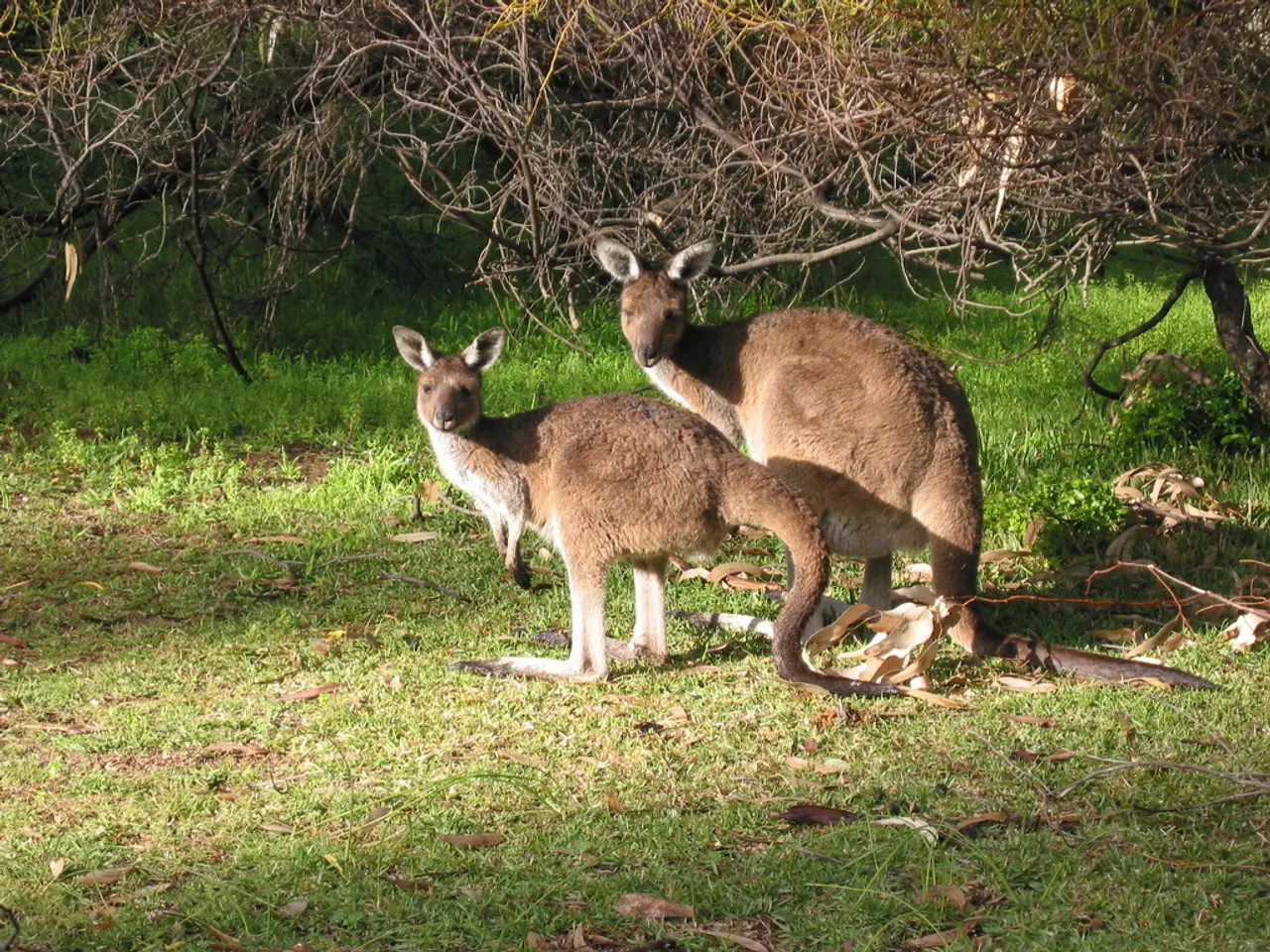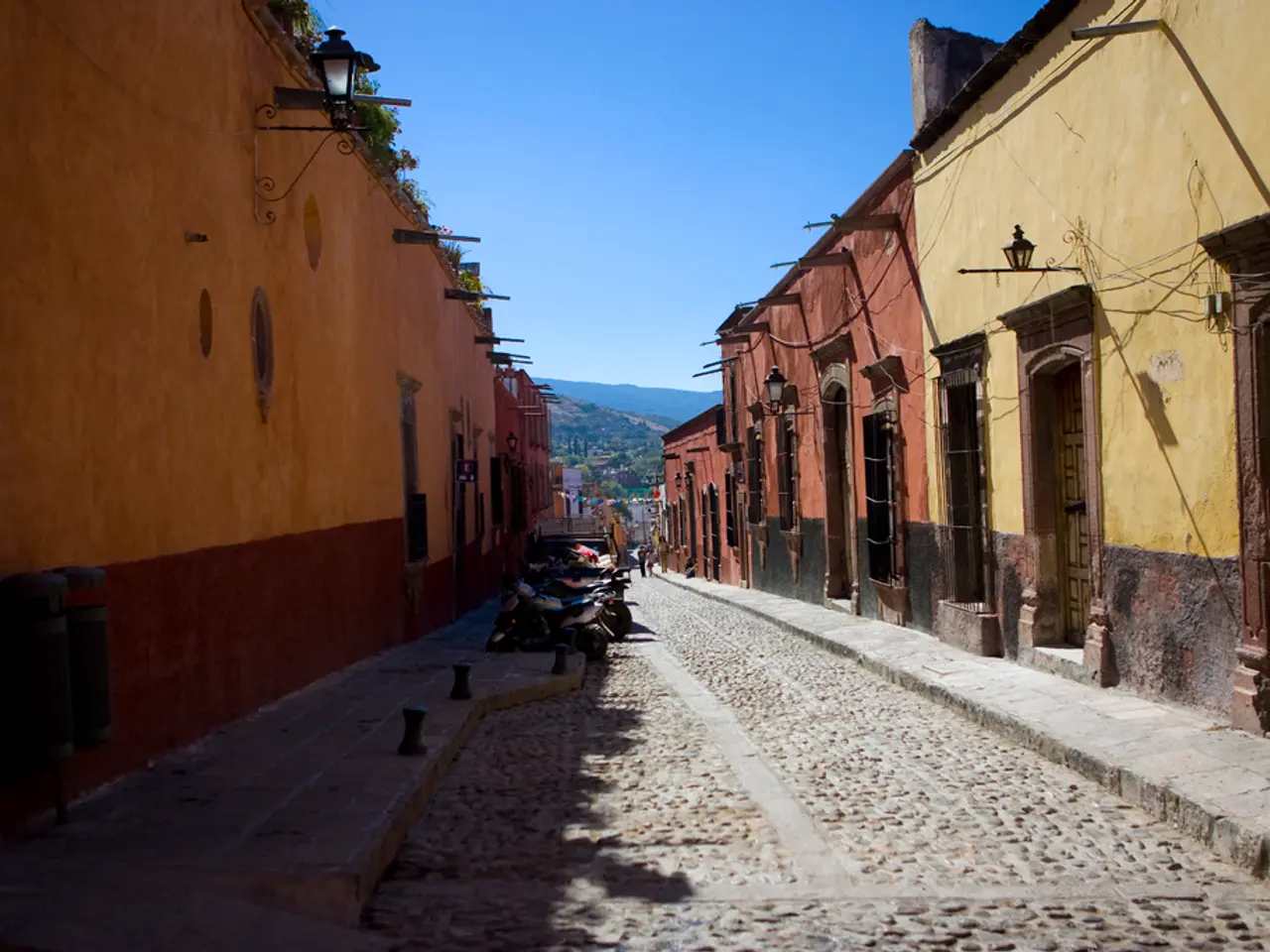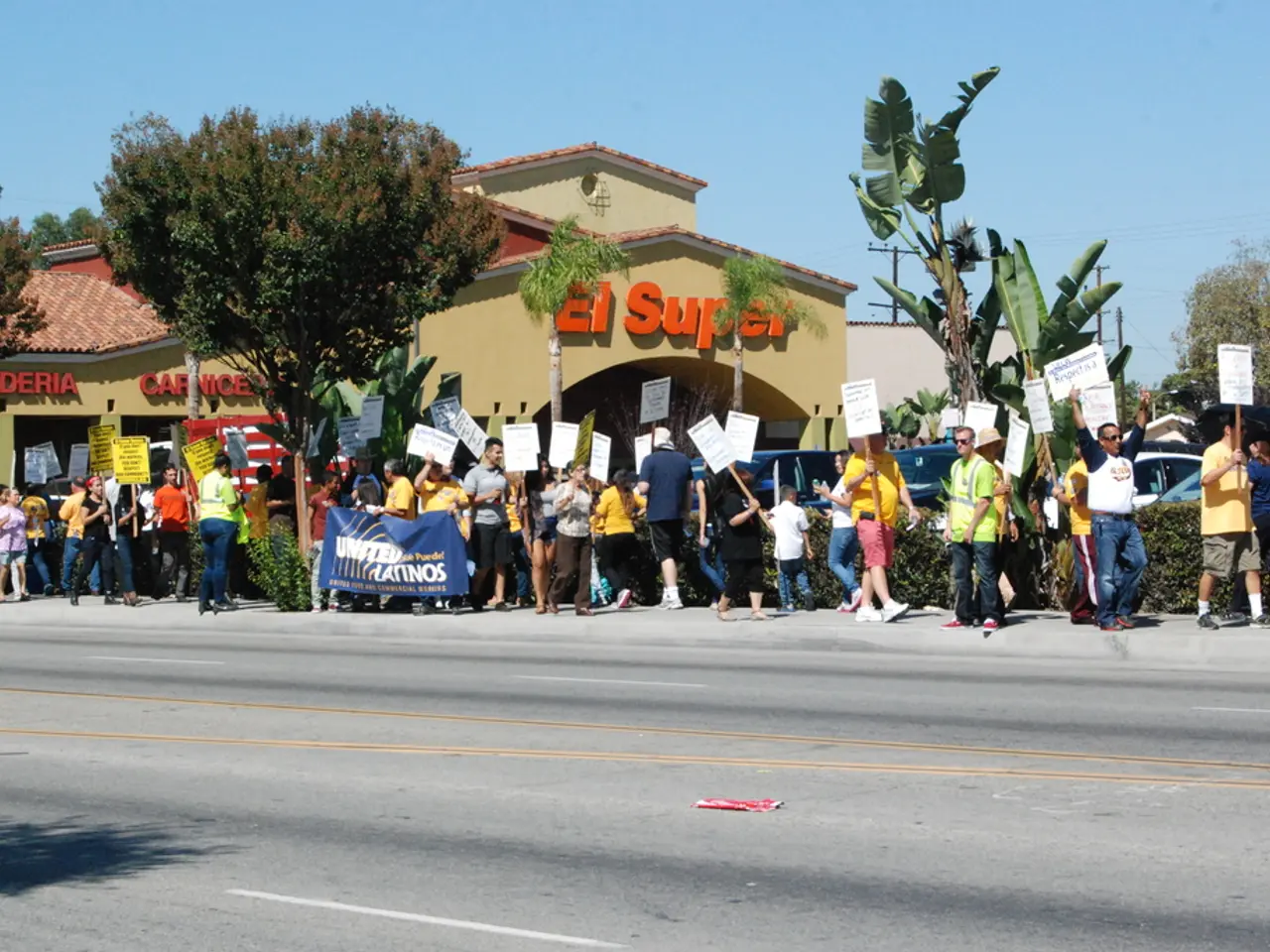Intense skirmishes along the Thailand-Cambodia border lead to the displacement of approximately 130,000 Thai civilians, as tensions between the two nations heighten.
The Thailand-Cambodia border conflict, which erupted on July 24, 2025, has taken a significant turn with a ceasefire effective since midnight on July 28, 2025. This development comes after a series of intense clashes involving heavy artillery, airstrikes, and rocket attacks, resulting in a tragic loss of life and displacement of civilians[1][2][3][4].
Humanitarian Impact
The conflict has claimed at least 19 civilian lives (13 in Thailand, 8 in Cambodia), with dozens injured on both sides[1][2][3]. Over 140,000 civilians from Thai border provinces alone have been evacuated under emergency conditions, with some sources suggesting that the total displacement could reach about 200,000 people[1][2][3]. Both sides have accused each other of targeting civilians and violating international law[2].
International Response
The ceasefire was brokered by Malaysian and U.S. officials, with reports indicating that U.S. President Donald Trump leveraged trade deal negotiations to pressure both countries into halting hostilities[3]. This conflict represents a significant test for the Association of Southeast Asian Nations (ASEAN) to manage internal regional disputes[4]. There is international concern over the rapid escalation, use of heavy weaponry including air force jets, and the humanitarian impact.
Potential Future Developments
Despite the ceasefire, experts and political leaders warn it may be fragile and temporary, with risks that full-scale war could resume if tensions and nationalist rhetoric persist[3]. The longstanding nature of territorial disputes around historic temples like Prasat Ta Muen Thom means that without a durable diplomatic settlement, clashes could recur[2][4].
Cambodian Prime Minister Hun Manet has endorsed a ceasefire proposal by Malaysia and appealed to the U.N. Security Council to intervene. Meanwhile, Cambodian authorities accuse Thailand of deploying cluster munitions and violating international law. International pressure continues to mount to enforce a decisive ceasefire and open negotiations toward de-escalation.
As the situation remains volatile, it is crucial for both countries to prioritise dialogue and diplomacy to ensure the safety and wellbeing of their citizens, as well as to maintain regional stability.
[1] BBC News. (2025). Thailand-Cambodia border conflict: Over 130,000 civilians evacuated. [online] Available at: https://www.bbc.co.uk/news/world-asia-61352406
[2] Reuters. (2025). Analysis: Thailand-Cambodia border conflict revives old tensions, risks flaring again. [online] Available at: https://www.reuters.com/world/asia-pacific/analysis-thailand-cambodia-border-conflict-revives-old-tensions-risks-flaring-again-2025-07-28/
[3] CNN. (2025). U.S. reportedly brokers ceasefire in Thailand-Cambodia border conflict. [online] Available at: https://edition.cnn.com/2025/07/28/asia/thailand-cambodia-border-conflict-ceasefire-intl/index.html
[4] Al Jazeera. (2025). Thailand-Cambodia border conflict: ASEAN faces test of regional solidarity. [online] Available at: https://www.aljazeera.com/news/2025/7/29/thailand-cambodia-border-conflict-asean-faces-test-of-regional-solidarity
- Despite the temporary ceasefire in the Thailand-Cambodia border conflict, experts and political leaders caution that it could become fragile and lead to a full-scale war if tensions persist.
- The Association of Southeast Asian Nations (ASEAN) is facing a test to manage internal regional disputes, as the Thailand-Cambodia border conflict represents a significant challenge.
- The ongoing conflict has resulted in the displacement of over 140,000 civilians from Thai border provinces, with some sources suggesting that the total displacement could reach about 200,000 people.
- The use of heavy weaponry, including air force jets, in the Thailand-Cambodia border conflict has raised international concerns over the rapid escalation of war-and-conflicts and the humanitarian impact.
- The ceasefire in the Thailand-Cambodia border conflict was brokered by Malaysian and U.S. officials, and there is international pressure to enforce a decisive ceasefire and open negotiations toward de-escalation, as the situation remains volatile and the safety and wellbeing of civilians is at stake.








